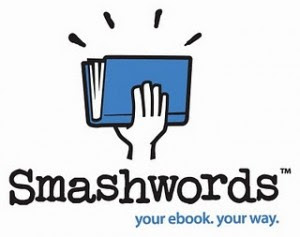I love libraries. One of my favorite memories involves a library. I was as a kid, it was summer and very hot. I biked over to the library on my no-gear bike and sank into one of its absurdly comfortable, enthusiastically orange, chairs. I listened to the whir of the air conditioner and gazed in appreciation at all the books. As I drank in the stillness, for a moment it felt like a sanctuary.
I can't imagine living in a city without a library. I can't imagine there not being any more libraries! But that could happen.
Not only is library use down, but a few publishers--most notably the 'Big 6' (Random House, Simon & Schuster, HarperCollins, Macmillan, Penguin and Hachette)--are making it more difficult for libraries to buy books. The following is from a librarian from a "mid-sized library system in South Carolina" who wishes to remain anonymous. He writes:
Random House tripled the cost of all their books so, for me to buy a copy of a $7.99 backlist title now costs me $23.97. To buy a copy of Fifty Shades of Grey would cost you $9.99 - that same copy costs a library $47.85. Hachette, beginning October 1, will be increasing the price of their titles by an even greater margin from early accounts. Oh, and Hachette won't sell frontlist titles to libraries at all - we can only buy backlist (and very old backlist at that). Which drew the reply from Sullivan: “Now we must ask, with friends like these...?” I couldn't have said it better myself. (E-books in Libraries: They Still Don't Get It)What are librarians doing about this? If Librarian X is any indication, they're getting angry and finding ways of procuring affordable, quality, material: they're turning to indies. Librarian X writes:
If you don't sell us your frontlist authors, what will happen in time is that other authors will show up who will take their place ... and the odds are that these others will be self-published or publish through a smaller publisher who doesn't view libraries as enemies. Speaking personally, I don't buy e-book titles from any of the Big 6 any longer. Why bother? I can buy titles from smaller publishers and authors for less than $10 through OverDrive and, in my studies of my circulation figures on those titles, they circulate just as well as the more expensive ones. Why should I care? With my purchasing decisions, I'm buying more titles and showing a return on investment far sooner. My boss is happy and I'm more than pleased to be doing my part to twist the knife even if only a little. (E-books in Libraries: They Still Don't Get It)This could be a marvelous opportunity for indie authors. Joe Konrath, one of the first and most well-known indie authors, has put together a proposal. He writes:
Blake and I are willing to sell our entire ebook catalog to the Harris County Public Library, and to any other libraries that are interested, under these terms:
1. Ebooks are $3.99
2. No DRM.
3. The library only needs to buy one ebook of a title, and then they can make as many copies as they need for all of their patrons and all of their branches.
4. The library owns the rights to use that ebook forever.
5. The library can use it an any format they need; mobi, epub, pdf, lit, etc. And when new formats arise, they're’re free to convert it to the new format.
In short, the library buys one copy, and never has to buy it again. (Ebooks For Libraries)
. . . .
I've ... gotten lots of emails from authors who want to offer libraries the same terms.If you're interested in either selling your books to libraries or in helping to organize this gargantuan undertaking, head on over to Joe's comment section.
The problem is organization. We need someone to act as a liaison between publishers and libraries to run something like this on a big scale. And I believe that person should be paid. How big a job this will be, and how much of a cut they deserve, can be discussed in the comments section. But indie authors need to come together to offer libraries their books, and dealing with 9000 different library systems would be a full time job. (E-books in Libraries: They Still Don't Get It)
Of course you don't need to organize to sell your books to libraries, or even to bookstores! Just approach the library and find out what their procedures are.
Whatever you decide to do, best of luck! :)
Other articles you might like:
- 3 Ways To Create Incredible Characters
- Amazon's KDP Select: The Best Long-Term Strategy?
- Save The Cat! The Importance Of Sympathetic Heroes
Photo credit: Paul Lowry





